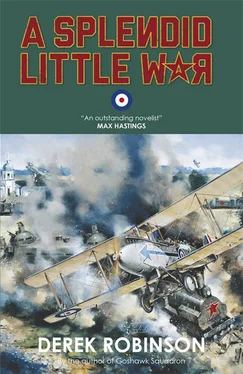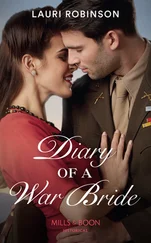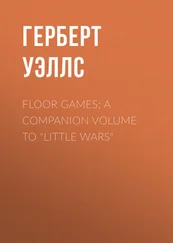“The doctor’s got him. Cleaning him up. He bled to death. Bit of a mess.”
“Alright. Look, keep it under your hat. The boys will find out soon enough. Kursk isn’t far, there’s bound to be a church with a graveyard. Scout about. Lowe, did you say? Which one was he?”
“Shortish, curly hair, smiled a lot. Looked like his pilot, Gunning. Could have been twins.”
Wragge worried about it, couldn’t remember the face, gave up. A late Nine sailed in, its engine sounding like a bag of rusty nails and the exhausts burping smoke. More bad news. Lowe could wait.
They took off, one bomber short, flew over the wrecked train and, twenty miles north, saw the Red strongpoint long before they reached it: a brisk exchange of artillery fire flashed and flickered. Tusker Oliphant’s Flight climbed hard to four thousand feet, where broken cloud would trouble the anti-aircraft guns. The Camels climbed higher, to give the Nines cover, and patrolled the twisting avenues of sky. As they cruised into a suddenly enormous space, a Red flight arrived by a side entrance. Three Sopwith Pups, each glowing with dazzle camouflage, and three brown Spads. For a moment both formations kept their shape and looked at each other across an empty quarter of a mile.
Pups, Wragge thought. Good in their day. Camels eat them for breakfast. And Spads are cads. Usually.
He had a couple of hundred feet advantage of height. The enemy cruised on. Maybe it was a trap. Or maybe they suspected the same. He led the Flight in a climbing turn, away from the Reds, and went circling up until he was six hundred feet higher and the enemy were further away than ever. But at least the Camels were above them.
It took five minutes of full-throttle flying to catch up. If there was a trap it was lost in the clouds. Wragge made a last scan above and behind, and pushed the stick forward. The whistle of wind in the wires built to its usual scream. Still the enemy flew straight and level in two arrowheads, Pups leading Spads. Wragge found a Spad growing big in his telescopic sight and his fingers were tightening on the trigger when the Spad vanished.
Borodin, arriving last, saw it all. The Pups banked hard left, the Spads went hard right, and the Camels plunged through the hole. Someone had watched, had known just when to scatter. Now the Reds had height advantage. The machines might be old but the pilots could fly. They could fight.
Wragge pulled out as hard as he dared and used the power of the dive to climb, which brought the familiar grey mist to his eyeballs and a deadening to his fingers on the stick. His heart pumped more blood, the mist faded and he saw two Pups drifting towards him in perfect formation, wingtips almost touching, even the jazzy camouflage was identical, look, they fired at exactly the same instant. Something kicked his Camel so violently that the stick jumped in his hands. He lost control and the sky turned sideways. His brain got to work. Double vision. Thanks very much, brain. One single Pup flashed overhead, so close that he could see its ailerons working. But by then the Camel was in a sideslip that became a spin and Wragge had his hands full.
The others saw none of this. Dextry was in a tail-chasing duel with a Spad whose turning circle was inferior to a Camel’s but the pilot didn’t know this and Dextry was trapped in the chase. If he straightened up and banked hard the Red pilot would get a chance of a clear shot. Maynard was chased by two Spads. He worked the rudder pedals and stick and swore without stopping until he found a cloud to hide in. The Spads prowled and searched but he escaped from cloud to cloud until they got bored. Borodin and Jessop scrapped with two Pups until one of the enemy had serious engine failure and glided out of the action, leaving a black scarf of smoke across the sky to mark its going. They shot it down. The other Pup vanished.
That was pretty much the end of the fight. Dextry’s tail-chasing Spad tried to frighten him with bursts of bullets behind his tail, ran out of ammunition and abruptly dived away. The others followed: he was evidently their leader. The C.O. toiled up from his spin and assembled the Flight. They flew home, all except Maynard. He was totally lost.
All that dodging and swerving had bewildered his compass. He had no idea where the railway was. The sun was no help: it was overhead and half the time it was behind cloud. He found a little river and followed it, for no good reason but he couldn’t think of anything better. It was a placid river and its meanderings told him nothing at all. Not very clever. He abandoned the river and decided to go to the other extreme. Climb high. Better view. He began spiralling up and got a view so frightening that he clenched his toes and his stomach muscles. His fuel gauge was a shocking sight. The needle was bouncing on empty.
That simplified the problem.
Maynard stopped climbing and throttled back and began a long glide that must end somewhere down there, preferably not a bog or a forest or a rocky hillside. Or, God help us, a Red Army camp. His phial of morphine was on the train. Unthinkable that he’d ever need it. Forget it. Look harder.
In the end the Camel decided. It skimmed a few birch trees, coughing its final warning, died and settled on whatever came next, which turned out to be a hayfield. The wheels found hard land deep in the grass and ran. The stems brushed the wings, but grass was no match for a Camel, and it mowed down the hay and came to a halt.
He closed his eyes. The sun was warm and the cockpit was wonderfully comfortable, so he rested his tired body and enjoyed being alive. When he opened his eyes, a man on a horse was looking at him. “I don’t suppose, by any amazingly good luck, that you speak English?” Maynard said.
“Not a bloody word. I’m from Wales. I don’t suppose you speak Russian. Is this your Camel? I don’t suppose it speaks Arabic.”
The more he thought about that, the funnier it got. Maynard laughed, and knew that what he was really laughing at was his amazingly good luck in not killing himself. Rocky ground would have thrown the Camel ass over tit and broken his neck.
He unclipped the pocket watch from the dashboard, undid his seat belt and climbed down. “Flying Officer Maynard,” he said.
“Major Edwardes, Royal Artillery. I’m an adviser to Denikin’s guns. I saw you looking lost, so I breezed over to pick up the pieces. You could probably do with a cup of tea. It’s a long walk. Jump up.”
He kicked one foot out of a stirrup. Maynard poked his boot into it and swung up, behind Edwardes. They trotted away. “Pleasant countryside,” the major said. “Reminds me of Suffolk. Where are you from?”
“Wiltshire. Went to school in Dorset. Sherborne.”
“I was at Gresham’s. Norfolk. Never learned a damn thing except sums. Won prizes for sums. So the army put me in guns.”
“Very far-sighted.”
“Perhaps. Also short-sighted. This was ’16; lots of gunners had kicked the bucket. Clobbered by Boche counter-battery fire. War Office was desperate. I was perfect. Clever enough to calculate range, stupid enough not to work out the chances of survival.”
Maynard realized that Edwardes was only a year or two older than himself. Maybe twenty-three or twenty-four. Probably only a captain raised to major for service in Russia. So he’d been rescued by a man more or less his equal. “Can you get a message to my squadron?” he said.
“We’ll try. Things are a bit fluid around here.”
Maynard’s legs were feeling the strain of being stretched across the broad hindquarters when they reached Edwardes’ unit. It was six field guns, horse-drawn, and four tents. Meals were being cooked on an open fire. Maynard slid off the rump and massaged his thighs. “I don’t suppose you brought your toothbrush,” Edwardes said. “Never mind. You can use mine.”
Читать дальше











